I want to create a Dynamic model of butterfly ecology using deSolve. the simulation runs over several simulation years and some events are triggered by the day of the year (so I added one state variable of days ). in order to trigger those events I want to use an ifelse statement and it works fine, until I try to put in the ifelse statement an operation involving another state variable: D.egg.sus=(ifelse(days<270,(400 * adult.sus),0)).
When I do so, the simulation runs, but it seems to ignore the ifelse statement.
can anyone help me please? here is my full code:
days = 1
egg.sus = 0
larvae.sus = 0
pupae.sus = 0
adult.sus = 1000
state = c(days = days, egg.sus=egg.sus, larvae.sus=larvae.sus,
pupae.sus=pupae.sus, adult.sus=adult.sus)
model = function(t, state, parameters)
{
with(as.list(c(state, parameters)),
{
D.Days = 1
D.egg.sus =
( ifelse(days<270, (400*adult.sus) ,0)) ## This is the line causing trouble
(- egg.sus/5)
(- egg.sus * rbeta(1, 6.038892/5,1.4612593)*.95)
D.larvae.sus =
(+ egg.sus/5)
(- larvae.sus * rbeta(1, 0.248531/14,0.2094379)*0.95)
(- larvae.sus/14)
D.pupae.sus =
(+ larvae.sus/14)
(- pupae.sus * rbeta(1, 0.022011/15, 1.43503))
(- pupae.sus/15)
D.adult.sus =
(+ pupae.sus/15)
(- adult.sus/30)
list(c( D.Days, D.egg.sus, D.larvae.sus,D.pupae.sus, D.adult.sus))
}
)}
events <- data.frame(var = c('days'),
time = seq(364,73000,by=365) ,
value = 0,
method = "rep")
require(deSolve)
times = seq(1,900, by = 1)
out = ode(y=state, times = times, func = model, parms = parameters, events = list(data=events))
dev.cur()
plot(out, col = 2)

